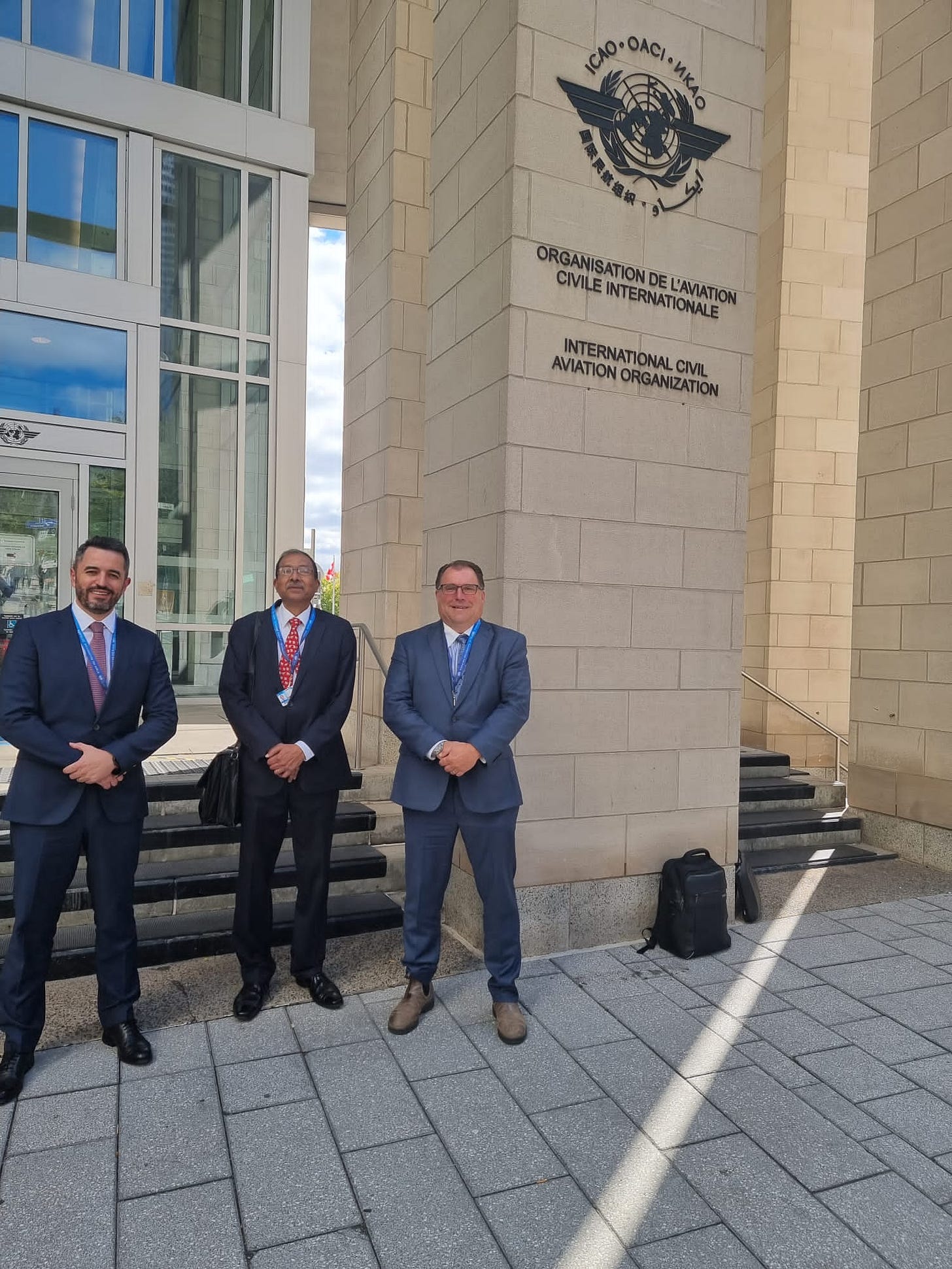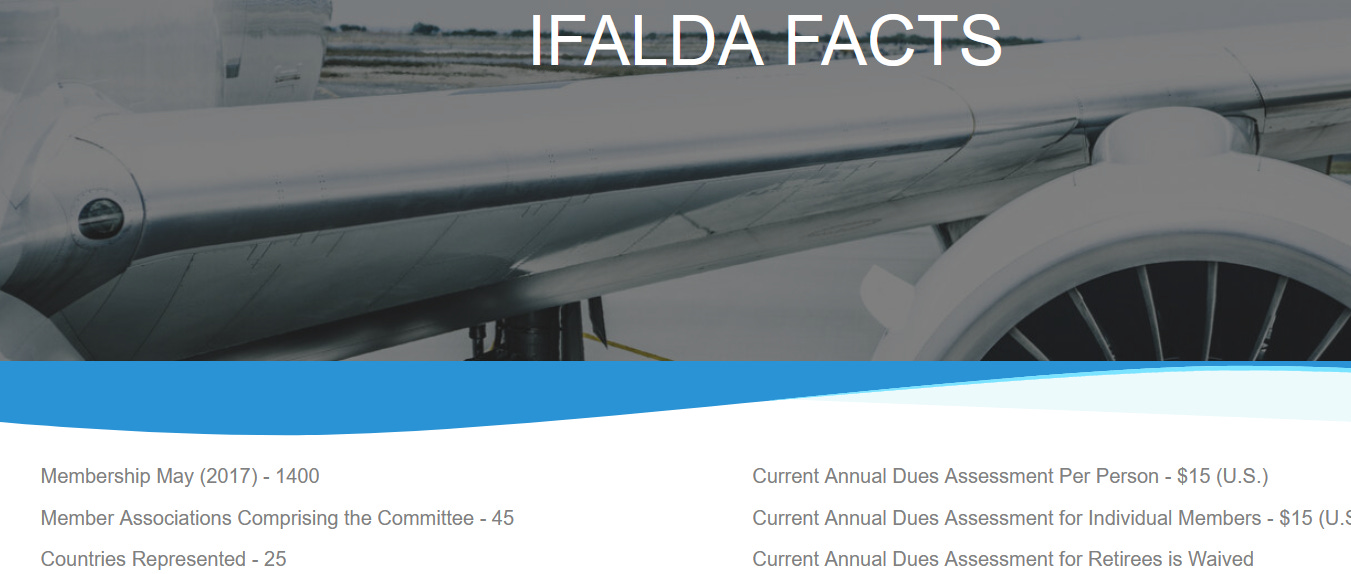FDW- Winter 2023 ed.
Flight Dispatch- The Heart of the Airline
Hello Dispatchers!
We're excited to bring you the 2023 Winter Ed. of Flight Dispatcher World (FDW). This edition is themed “Dispatch- The Heart of the Airline”. This quote is attributed to Herb Kelleher, Co-founder of Southwest Airlines. Kelleher once said
"If you're crazy enough to do what you love for a living, then you're bound to create a life that matters."
Kelleher was a firm believer in the importance of flight dispatchers and the crucial role they played in the success of an airline. He knew that without them, the airline would not be able to operate safely and efficiently. And it's not hard to see why. Flight dispatchers work tirelessly behind the scenes, making sure that every flight is planned and executed flawlessly. Without them, the airline would be like a body without a heart - not exactly a recipe for success! Hear more from Bernard Gonsalves, Director ATM, on the various ICAO regulatory requirements that make up for the Roles, Responsibilities, Duties and Functions of a successful Dispatcher.
About IFALDA
Let’s start at the very beginning to tell you about IFALDA, a dynamic international Dispatcher Federation made up of various Aircraft Dispatcher and Flight Operations Officer associations from all over the world. Founded in 1961, IFALDA has a rich history of promoting professionalism and the highest standards of safety in the civil aviation industry.
With over 1,900 members from 25 countries, IFALDA is dedicated to coordinating the professional efforts and representing the interests of its members on a global level. If you're passionate about advancing the field of aviation and making a difference in the industry, then IFALDA is the organization for you!
Dispatchers, also known as Flight Operations Officers, are the masterminds behind every successful flight. They act as the airline ‘ATC’ behind the scenes, making sure that each takeoff and landing is safe and seamless. In North and Latin America, they're commonly referred to as Flight Dispatchers, while in Europe, they're often referred to as Flight Operations Officers or Flight Handling Officers. No matter what you call them, we are the skilled professionals that play a crucial role in making air travel a reality and more importantly that it is safe.
Read more about IFALDA’s history here…
IFALDA Mission Statement
To Coordinate the Professional Efforts and to Represent the Professional Interest of the various Aircraft Dispatcher / Flight Operations Officer Member Associations on a Global Level.
Beginnings are Hard
In 1929, the term “dispatcher” first appeared in advertisements in aviation trade publications in conjunction with more sophisticated means of communicating with aircraft. Advertisements in Aviation (1929) promoted the Western Electric two-way radio telephone system that “permits the dispatcher at the airport to talk at will with pilots in flight, advising them and receiving constant reports of their progress” (p. 4). A similar advertisement is available for viewing online
The first documented educational program for training aircraft dispatchers appeared in the October 1936 issue of Aviation. The subjects covered included meteorology, dispatch practice, and airline operations. The course took 18 months to complete and required 2 years of college or 9 months of accredited engineering college coursework prior to enrolling (p. 66).
"(S)He is the person (man) who decides whether the planes will fly or not. He releases all planes on his division, follows their progress in the air, and keeps the captains…advised of conditions affecting their flight…He coordinates all flight operations to achieve these objectives: safe, swift, and dependable air transportation." (Twogood, 1947)
The flight superintendent position required a pilot certificate and a dispatcher certificate issued by the Civil Aeronautics Authority (Twogood, 1947).
Source: The Aviation Vault. Read more here…..
More about us
At IFALDA, we're all about supporting and guiding our affiliate member associations to tackle the challenges within their own areas. But we don't stop there! We also take on international issues and work closely with organizations like ICAO to make a difference on a global scale. Our team of expert working groups and committees are dedicated to areas like dispatcher training, ATC coordination, and more.
And we love getting together! We host an Annual General Meeting every May, and our Board meets three times a year to keep the organization running smoothly. We also share updates and news with our members and friends through our quarterly newsletter, "Flight Dispatcher's World". Whether you're a member or just interested in what we do, you're always welcome to join us at our meetings and events!
IFALDA coordinates and provides leadership and support for our affiliate member associations in their efforts to deal with issues within their own areas of responsibility. IFALDA takes responsibility for dealing with international issues that go beyond the borders of the member states, working closely with ICAO and other international agencies. This work is done through the use of task oriented working groups formed by IFALDA for specific purposes. There are also standing committees and groups that work on dispatcher training documents and references, ATC coordination, and other routine matters.
Stop Press: IFALDA is urgently looking for flight dispatcher subject matter experts (SME) with extensive NAT experience to represent Dispatchers on the ICAO LADRNAT AUTONOMOUS DISTRESS TRACKING EXERCISE TEAM.
IFALDA is one of the co-authors of ICAO Circular 347 – Normal Flight Tracking
Self-nominations can be addressed to dhporter@ifalda.org
What kind of community are we looking to build here
Dispatchers play a critical role in ensuring the safety and success of every flight. As part of the operational control system, dispatchers work in conjunction with flight crews to ensure that all safety protocols are followed. They undergo rigorous training and certification, and are an essential component of the operational control systems required by all air carriers in the US and Canada.
The system of operational control, exercised by dispatchers and flight crews, contributes significantly to aviation’s excellent safety record. Today, dispatchers undergo stringent training and certification. All US and Canadian ‘Flag’ air carriers require operational control systems, both for scheduled and non-scheduled operations. Modern flight position reporting technologies and weather reporting systems provide dispatchers with more real-time information than ever before. The dispatcher today is able to utilize a complete and comprehensive view and synthesize all of these disparate pieces of information than flight crews can access while busy with their duties and isolated within the confines of the cockpit.
The world of the Jetsons has arrived
David H. Porter is former President of IFALDA and Special Assistant to the President. Hear his thoughts about a new concept for Upper Airspace traffic management with what is now being referred to as Digital Flight Rules (DFR). It aims to improve aerial mobility by making use of modern technologies that are not limited by old restrictions. DFR will allow vehicle operators to manage their flights more effectively, without relying on ATC separation services.
The proposed new operating mode will complement and add to the existing modes of Visual Flight Rules (VFR) and Instrument Flight Rules (IFR). Over the next 15-25 years, it is hoped that DFR will become an option for all airspace users, including airlines, and provide greater access and operational flexibility in all visibility conditions and airspace classes. Read Dave’s article here….
For those interested in further reading on this subject, see also this NASA paper
“Digital Flight: A New Cooperative Operating Mode to Complement VFR and IFR “
Introducing FF-ICE, GUFI and the ICAO Alphabet Soup
Are you ready to dive into the world of aviation acronyms? The ICAO Air Traffic Management Requirements Panel (ATMRPP) has created FF ICE, a tool for flight dispatchers to help minimize air traffic delays by using Trajectory Based Operations (TBO). TBO is a fancy way of saying that a flight's trajectory includes 4 things: route, airspeed, flight level, and time.
To avoid Traffic Management Initiatives (TMIs), the air traffic control system needs to know a flight's intent in advance, which is where FF ICE comes in. The process starts with an early intent message, followed by optional Trial Requests, a preliminary Flight Plan, and finally, the Filed Flight Plan. It's a lot of work for the dispatchers, but at least they'll have all the tools they need, thanks to FF ICE. Just remember, there's a lot of alphabet soup involved, so grab a spoon and let's dive in to hear more from our in-house expert!
A North Atlantic Update
As this article in the Visual Capitalist quite aptly states “Only one route breaks the billion dollar barrier: British Airways’ service between London Heathrow Airport (LHR) and New York’s John F. Kennedy Airport (JFK). “
IFALDA has been a regular participant in supporting the ICAO NAT Regional Planning & Implementation groups (NAT PIRG). We participated at the 1st NAT Vision 2030 workshop, Paris Jan.2019 where a Dispatcher perspective for Airspace Optimization was presented as a Working Paper.
No update to the North Atlantic would be complete without mentioning Doc.007. The IFALDA Bots with their espionage hats on, have worked tirelessly to pull out and bring you the latest version of this Document in true 007 style. IFALDA continues to actively contribute to this publication, especially Ch.16 ‘Guidance for Dispatchers’.
ICAO 41st Assembly Update
The 41st Assembly of ICAO is an important event for the aviation community, especially for flight dispatchers. This assembly is held every three years and brings together key stakeholders from governments, international organizations, and the aviation industry to discuss critical issues and advancements in air navigation. As flight dispatchers, we are responsible for planning and coordinating flight operations, they will be directly impacted by the decisions and outcomes of this assembly. IFALDA submitted two Working Papers towards the proceedings with a view to provide the delegates with valuable insights into the Functions of Dispatchers.

These Working Papers can be downloaded here

Director Global ATM Updates
GRF: The Global Reporting Format (GRF) is now being rolled out under a revised Snowtam format for runway conditions! It's a way for ATC and aerodrome operators to communicate the condition of the runway to Dispatchers (Snowtam) and the flight crew (Advisories). Basically, a trained observer uses a special matrix to assign a code to each third of the runway, which represents the surface conditions. The code, along with a description of any surface contaminants, is used to make a report (RCR) that's shared with the flight crew. And then the flight crew uses that report, along with other data, to make sure their takeoff or landing will be a smooth ride. GRF is used in all climates and covers everything from wet runways to snow and ice. It's a pretty neat way to make sure everyone's on the same page and flying safely!
Qatar Regains its Airspace & creation of the Doha FIR: On September 8th, 2022 and in time for the World Cup Soccer gala, the Qatar Civil Aviation Authority signed agreements with Saudi Arabia, Bahrain, and the UAE to activate the Doha Flight Information Region (FIR). This activation gives Qatar complete control over its airspace and provides numerous operational benefits. The activation of the FIR is expected to smooth out the ‘hot spots’ experienced in the OBBB FIR and improved COM & hand-offs. The phased roll-out is covered in the AIP Supp & AIC that can be donwloaded here….
Canada ADS-B Mandate: The ADS-B mandate from Transport Canada follows a phased approach with specific deadlines. By January 1, 2020, aircraft operating in designated areas of Canadian airspace must be equipped with ADS-B Out technology. Then, by June 15, 2025, all aircraft operating in controlled airspace must be equipped with ADS-B Out technology, regardless of the altitude they fly at. The implementation of the mandate allows Nav Canada to enhance the safety and efficiency of air traffic management, as well as meet international requirements for surveillance of aircraft. You can read more on this mandate here….
GADDS update: The Global Aeronautical Distress and Safety System (GADSS) regulation by ICAO has been postponed from January 2021 to January 2023. The delay is due to a lack of enacted regulations for the distress tracking element of GADSS on new aircraft deliveries and a tight schedule for development, testing, and certification of technology. The standard for distress tracking will apply to new-build aircraft as of 2023. The delay was approved by the ICAO Council and has been supported by the European Aviation Safety Association (EASA) and airplane manufacturers like Airbus and Boeing. The industry is expected to comply by the 2023 deadline. You can read more at the ICAO website here….
Canada Champions for the True North: Magnetic north has long been a problem for aviation, causing issues with flight procedures from enroute to approach phases. Though aviation has advanced, small errors caused by dips in the Earth's magnetic field still lead to mismatches between navigation systems. Modern aircraft use Inertial Reference Systems that function in true north, but are still displayed in magnetic north to pilots. Canada's NavCanada is pushing for a shift to true north, as it would simplify processes, remove the cost of updating magnetic variation, and potentially save millions for the aviation industry. The switch can be made by selecting the true north option on most aircraft, but full acceptance from ICAO could take 10+ years. Read more here….
AGM- Paris May 2023- May 11 - 13, 2023
Hear from Francois Eraud, President of the French Airline Dispatcher Association, the Hosts for the 2023 Paris AGM and the excellent preparations underway for the forthcoming International Airline Flight Dispatchers' Conference & IFALDA's 62nd Annual General Meeting. It will run coincident with EUFALDA's Annual General Meeting
Hotel Information INNSIDE - Paris charles de Gaulle
9 rue du Voyageur Roissy Pôle Ouest 95700 Roissy en France France
ROISSY EN FRANCE
Phone: +33 1 4 81 65 555
Room Rates:
Standard Room Single Breakfast Included - 129.00 Euros
Standard Room Double Breakfast Included - 144.00 Euros
*Rates are available for 2 days before and after the conference
To book your accommodations for the IFALDA Conference Rate
Please Email or Call: Manel Frikech, attachée commerciale Groupes et Evénementiel Event and Groups Manager Innside Paris Charles De Gaulle INNSIDE BY MELIÁ, PARIS CHARLES DE GAULLE AIRPORT
9 rue du voyageur, Roissy Pôle Ouest
95700 Roissy en France Tel : +33 (0)1 48 16 23 61 | +33 (0)6 31 99 57 74
manel.frikech@melia.com 360º Hotel tour:
https://innside-paris-charles-de-gaulle-airport.firstview.us
Update from EUFALDA on EASA NPRM on Operational Control Personnel
EUFALDA has been working closely with EASA over the last 2 years in framing Annex III Subpart GEN Requirements relating to EU Regulation 379/2014 and 2019/1384. These Regs. outline the responsibilities of aircraft operators in regards to the operation of their aircraft.
The competent authority designated by the member state in which the operator is based has oversight responsibilities. Operators must thereby comply with these regulations and requirements, establish and maintain a system for operational control, ensure their aircraft and personnel are equipped and qualified, establish procedures and instructions for safe operation, follow laws and regulations of states in which they operate, and establish a checklist and flight planning procedures. Additionally, operators must establish and maintain dangerous goods training programs and security training programs for crew members.
The Regulation also stipulates strict requirements on Airlines for skills & capbilities of Instructors. Instructors for operational control personnel must:
Be current in the subjects covered by the FOO/FD training program or have completed the program themselves
Have adequate instructional skills or attend instructor training. Recurrent training is required if more than 24 months have passed since their last training delivery.
Have relevant work experience in the areas they will be providing training in. The OM (Operational Manual) of the CAT operator should outline the required knowledge, skills, and qualifications of instructors.
Your comments and feedback to this NPA are most welcome and could be sent to bgonsalves@ifalda.org. We will be sure to include them in our response.
The NPA is now better aligned with ICAO Annex 6 P1. In summary, Operational control is understood as the monitoring and management of flights by air operators. The use of flight operations officers or flight dispatchers is not mandatory but if used, they should be trained based on ICAO Annex 1, ICAO Documents 10106, and 9868. The operator should develop a training program for Dispatchers/FOOs and describe it in their Operations Manual. The initial training should cover air law, aircraft general knowledge, flight performance, human performance, meteorology, navigation, operational procedures, principles of flight, radio communications, and special aerodromes. FOOs/FDs should also receive operator-specific training and undergo recurrent training every 36 months.
How to become an Aircraft Dispatcher
IFALDA regularly receives questions about the US Flight Dispatcher Program. The schematic below outlines the various stages that lead up to becoming a fully qualified, certified and experienced Dispatcher. An Airman Certificate leads to a gaining the required experience with a “Flag” Carrier or Part 121 Operator where a Dispatch and Operational Control Function is mandated by law and where the onus falls on the Part 121 Airline to ensure that the right quality and competencies are provided through Initial and Recurrent on-the-job training accompanied by Supervision & Checks provided by Airline authorized Training supervisors/instructors














